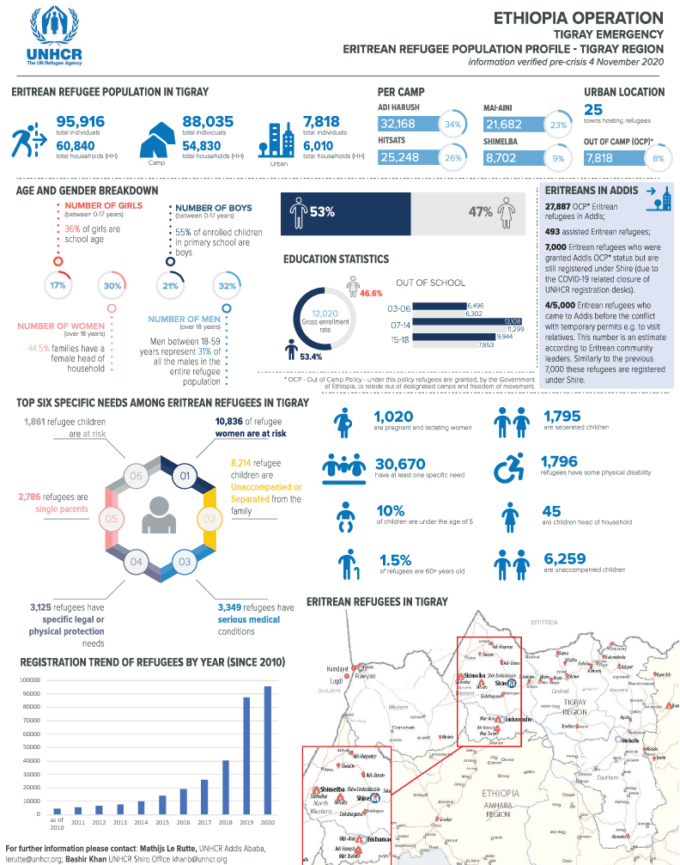First, the locusts came. It was hard to discern the impact. That’s because Donald Trump was doing something stupid at the time, closely watched by the world’s media. Then, on November 4, 2020, came the soldiers, the looting, the press gangs, and the rapine.
If you don’t know where I’m talking about, it’s because only biblically proportioned catastrophes such as the 1983-85 famine in Tigray, which killed 1,000,000 people, contain enough zeros to make it into the ABC Nightly News running order. This year’s impending disaster in Tigray is on the radar of the more thorough news outlets (The Guardian, BBC, and Al-Jazeera have all done their best, for example).
Yet a news, internet, and phone blackout have restricted reportage to the point where leaks have started to appear. At one relief coordinating committee meeting in the Ethiopian town of Mekele, an official of the interim administration of central Tigray (the federal government has replaced civil servants en masse) said: ‘The situation on the ground is dire.’ He added that Tigrayans were dying in their sleep from starvation.
Ethiopia’s Tigray province, squeezed in the north of the federation between Eritrea and Sudan, has a population of 4.5m, for now. 50,000 have fled in the last two months. Tigray still homes many tens of thousands of Eritrean refugees from prior conflicts and repression. Eritrea seceded from the Ethiopian federation in April 1993 after the United Nations brokered a peace between the renegade province and Addis Ababa.

Dashboard on Tigray famine. Source: UNHCR.
The politics are complex but the result is stark. For Nobel Peace Prize winner Abiy Ahmad, it’s payback time. Tigray was the last stronghold of the former rebel alliance’s lead member, the Tigrayan People’s Liberation Front. Abiy, who wrested control of Ethiopia’s central government from the TPLF and their allies in 2018, was not recognized as leader by the TPLF’s now-defunct Tigray government. Abiy would deny it, but he’s called on the TPLF’s old enemy, the Eritreans, to hand him an assist.
That has caused bad things to happen. Eritrean troops are getting their own payback on dissident refugees given a home by the TPLF. There are reports of crop burning and forced repatriation of Eritrean refugees. The news blackout has allowed the crisis to fester for weeks while aid agencies requested access. There is no food in the looted shops.
Mari Carmen Vinoles, from Doctors Without Borders, said this week: ‘There is an extreme urgent need—I don’t know what more words in English to use—to rapidly scale up the humanitarian response because the population is dying every day as we speak.’
One prominent Ethiopian businessman I spoke to, an Abiy supporter with strong ties to the United States, had worked for two years to get the stateside Ethiopian vote out for Joe Biden. He was despondent, indeed irritated to hear the D.C. scuttlebutt that the incoming U.S. administration would not support Abiy in his bid to oust the Tigrayan regional regime. The world turns, but famine is the spectre on the horizon.
This first appeared on Maqshosh.